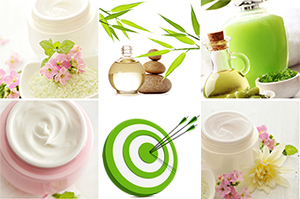The dynamics of the natural personal care market are impressive, attracting more and more players that want to profit from the lucrative opportunities this market offers. Over time, our ongoing Natural Personal Care Global Series report has identified several factors that have been influencing and driving this prosperous market. Let’s take a look at the top three drivers in recent years:
- Consumer awareness
Having greater access to information, mostly due to the Internet and social media, consumers are continuously and increasingly moving towards a greener lifestyle, making choices to minimize their contact with potential toxins. They are well informed about the potential harm that some ingredients could possibly do to their bodies and the benefits of using natural ingredients. Consumers are also seeking full transparency from cosmetics companies on their sourcing methods, production, ingredients, and overall sustainability practices.
In response to this increasing demand, marketers have been reformulating with a higher proportion of truly natural ingredients in their products. The continued shift towards the truly natural segment was one of the strongest trends on the market in recent years, with several brands, such as Avalon Organics, JĀSÖN, Korres, and Logona, whose ratings are tracked in the Natural Personal Care Global Series, moving upwards in 2014.
- Distribution channel expansion
Although the channel mix varies from one region to another—for example, in Germany, drug stores are by far the largest distribution channel, whereas the health and natural food store channel prevails in the United States—globally, the trend has been towards marketers not only strengthening their position in these traditional channels, but looking around for other opportunities to sell their products. Today, naturally positioned brands can be found in a majority of distribution channels. Mass marketers have dedicated shelf space, and professional establishments, such as beauty institutes and hair salons, have been a new target for many natural brands.
In Europe, retail outlets are seizing the opportunity of the natural segment not only through making shelf space available for these products, but also through the development of private labels. In Germany, this is mostly coming from drug stores, such as Alterra in Rossman and Alverde in DM, while in France this is visible in supermarket chains, such as Carrefour Agir Bio and Auchan Bio.
- The challenge of traditionally non-natural product categories
With thousands of naturally-positioned brands worldwide, marketers have been looking for more creative ways to compete in this increasingly fragmented segment. Many companies offering naturally positioned products have been trying to penetrate further into traditionally non-natural product categories, particularly makeup, where truly natural product formulations are less common.
It will be interesting to see how this market evolves in the upcoming years and what are the different challenges and measurements that natural personal care marketers need to undertake in order to strengthen and increase their positions. We will reveal more about these strategies, as well as other detailed insights on the size and growth of the market, competition, distribution channel, key trends, and new product launches, in the new edition of our Natural Personal Care: Global Market Brief report. To learn more about this imminent report, drop us a note.
Written by Agnieszka Saintemarie, Project Manager, Consumer Products Practice

